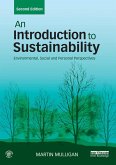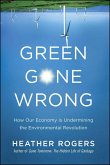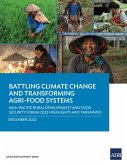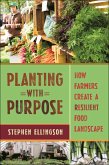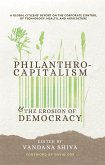Rural America is struggling. The average farmer is now 57 years old. Family agriculture is gradually fading, and prime farmland is often converted into environmentally harmful applications. But food cultivation has ecological consequences, too. Farms consume 80 percent of the nation's water. Although they often prevent sprawling development, improve water quality, or provide wildlife habitat, they also pollute rivers, drain wetlands, or emit destructive greenhouse gasses.
Don Stuart believes two dangerous trends--the loss of farms and damage to ecosystems--are connected, and that a major cause is the political deadlock between farmers and environmental activists. He offers a radical proposal: collaboration. To promote empathy and point out the costs of continued political impasse, he presents opposing perspectives. Topics include incentives, regulations, government spending, environmental markets, growth management, climate change, public lands grazing, and the federal farm bill. Drawing from multiple case studies and a lifetime spent settling conflicts, the author identifies characteristics of successful community programs to suggest a model for a prosperous, healthy future.
Hinweis: Dieser Artikel kann nur an eine deutsche Lieferadresse ausgeliefert werden.
Don Stuart believes two dangerous trends--the loss of farms and damage to ecosystems--are connected, and that a major cause is the political deadlock between farmers and environmental activists. He offers a radical proposal: collaboration. To promote empathy and point out the costs of continued political impasse, he presents opposing perspectives. Topics include incentives, regulations, government spending, environmental markets, growth management, climate change, public lands grazing, and the federal farm bill. Drawing from multiple case studies and a lifetime spent settling conflicts, the author identifies characteristics of successful community programs to suggest a model for a prosperous, healthy future.
Dieser Download kann aus rechtlichen Gründen nur mit Rechnungsadresse in A, D ausgeliefert werden.
Hinweis: Dieser Artikel kann nur an eine deutsche Lieferadresse ausgeliefert werden.





